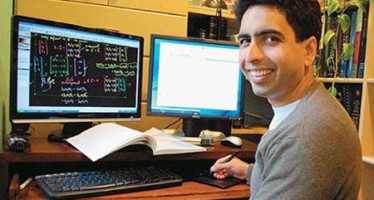New Zealand awards grant to Bangladeshi scientist for regrowing teeth

The project aims to develop a biometric system that could potentially trigger remineralisation and regrowth of dental tissues.
Bangladeshi scientist Dr Azam Ali has been awarded an explorer grant by the New Zealand government for his groundbreaking project on re-growing dental tissues.
The researcher’s “No drill, no fill” is one of 11 groundbreaking projects on health issues that have won $1.65 million in explorer grants from the Health Research Council, reports the New Zealand Herald.
Each explorer grant is worth $150,000 and provides seed support for cutting edge research at an early stage for up to 24 months.
According to the report, the project aims to develop a biometric system that could potentially trigger remineralisation and regrowth of dental tissues.
Dr Ali’s team will combine biomaterials like collagen with bioceramics, consisting largely of calcium phosphate.
The researcher told the New Zealand Herald: “We are planning to develop biomaterials which will be very, very compatible with dental tissue and offer a biological function.
“The biomaterials will mimic the cells and regenerate and produce new dental tissue.”
Welcoming the study, New Zealand Health Minister Jonathan Coleman said: “Developing a technique to regrow teeth, for example, is an extraordinary concept and offers huge potential for people suffering from dental health problems.
“The government supports research that leads to improved health outcomes and more effective delivery of healthcare for New Zealanders.”
Ali obtained his Bachelors and Masters in Chemistry from Jahangirnagar University in 1988 and 1991 respectively. In 2000, he obtained a PhD degree in Polymer Science and Engineering and Nanotechnology from the Universiti Sains, Malaysia.
He worked as a senior scientist and biomaterials research leader at AgResearch from July 2003 to April 2013. In 2013, he joined as a senior lecturer at the University of Otago, Dunedin campus.
For inventing a bio-degradable suture made from fibres derived from an absorbable polymer and a milk by-product, he was awarded the Bayer Year of the Innovators Awards 2010. The suture has proven effective in treating burn injuries from acid attacks and fires.
The internationally recognised biomaterials expert has published more than 40 peer-reviewed papers and holds 18 international patents and patent specifications.
original source at http://www.dhakatribune.com
Related Articles
Crimes against women
Recent events in India and Pakistan, in the cases of a schoolgirl shot by Taliban, Mahala Yousafzai, and the medical
Boosting up bureaucrats for adopting e-Governance
Governance capacity building initiatives are being taken to mobilise services and functions of the government bodies. Bangladesh government will get
Khan Academy: a free tutorial home for learners around the globe
by Maswood Alam Khan EVERY person encounters some bijou moments at some stages of his or her lifetime when some






